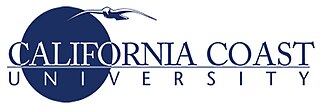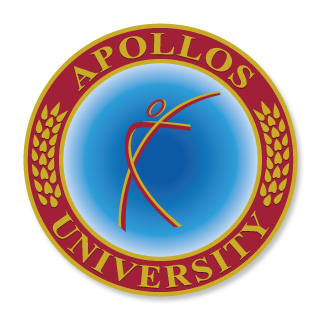The California Bureau for Private Postsecondary and Vocational Education (BPPVE) was a unit of the California Department of Consumer Affairs whose purpose was to protect students by establishing academic standards for private institutions of higher education in California. BPPVE approval or exemption was required by the State of California to ensure consumer safety from fraudulent or substandard education providers. The agency ceased operation on July 1, 2007, when the legislative authority for its creation expired. [1] A new agency, the California Bureau for Private Postsecondary Education, took its place on January 1, 2010.
The agency was not a recognized accreditor, nor did its approval serve as a substitute for educational accreditation. State Approval did mean that the Bureau had determined and certified that each approved institution had met minimum standards as established in state law for integrity, financial stability, and educational quality. [2]
The Private Postsecondary and Vocational Reform Act of 1989 [3] created the Council for Private Postsecondary and Vocational Education as the overseer and regulator of private post-secondary educational institutions in the State of California, transferring this authority from a Division of the state's Department of Education. [4] A 1997 amendment to the legislation replaced the Council with the Bureau for Private Postsecondary and Vocational Education (BPPVE). [4] The bureau "regulated approximately 1,800 schools serving an estimated 400,000 students", and administered statutory exemptions from the regulations for schools that teach religion. [5]
The BPPVE was not a recognized accreditor, nor did its approval serve as a substitute for educational accreditation. State Approval meant that the Bureau had determined and certified that each approved institution had met minimum standards as established in state law for integrity, financial stability, and educational quality. To qualify for approval, an institution had to meet standards with regard to course objectives, and content of courses; physical space; equipment and instructional materials. Other approval criteria included the education, experience and qualifications of instructors and administrators; maintenance of student records; compliance with health and safety codes; and policies for refunding unused tuition and fees. State approval was also a prerequisite in order for a private institution to become accredited. [2] BPPVE informational materials stated "Approval is not the same as accreditation." [2] Institutions already holding regional or national accreditation were not required to seek California state approval. [6]
The bureau accepted and acted on student complaints and oversaw a fund to reimburse tuition money if a school closed unexpectedly. [2] It also maintained a directory of schools with information regarding operation and academics. [7]
The agency acquired a reputation for being ineffectual. [8]
Because of a sunset provision in the law, the Private Postsecondary and Vocational Education Reform Act expired on July 1, 2007, and the BPPVE was required to cease operations on that date. [1] Legislation to extend the statute was passed by the State Legislature but was vetoed by Governor Schwarzenegger. In his veto message, the governor called for comprehensive reform, saying that an extension of the statute would "[allow] problems that have been well documented to continue to exist and merely [allow] mediocrity for California’s students." [9] On July 12, 2007, Schwarzenegger signed into law a bill to extend student protections at private postsecondary vocational education institutions through January 31, 2008. This statute allowed the state Department of Consumer Affairs to enter into voluntary compliance agreements with for-profit institutions while more permanent arrangements were considered by the legislature and state administration. [1] [6]
During the period between the termination of BPPVE and the start of operations by the successor organization in January 2010, diploma mill operations increased in California. [10]
A diploma mill or degree mill is a business that sells illegitimate diplomas or academic degrees. The term diploma mill is also used pejoratively to describe any educational institution with low standards for admission and graduation, low job placement rate, or low average starting salaries of its graduates.

California Miramar University (CalMU) is a private for-profit university in San Diego, California. The university offers degree programs through distance education and a combination of on-line and classroom (hybrid) delivery. It is accredited by the Distance Education Accrediting Commission.
Columbia Pacific University (CPU) was a distance learning school in California. It was founded in 1978 and closed by California court order in 2000.

California Coast University (CCU) is a private for-profit online university based in Santa Ana, California. It is accredited by the Distance Education Accrediting Commission and approved by the State of California. It enrolls approximately 8,000 students.
California Pacific University was a private university originally founded in Escondido, California. Its law school was originally located in Bakersfield, California. The university was aimed towards working professionals in business management. The school of law was accredited by the California State Bar Committee of Bar Examiners of the State Bar of California.
The Oregon Office of Degree Authorization (ODA) is a unit of the Office of Student Access and Completion, with responsibilities related to maintaining high standards in private higher education institutions in Oregon. ODA administers laws and provides oversight of private colleges and universities offering degree programs in the state, validates individual claims of degrees, enforces the closure of substandard or fraudulent higher education programs in the state, and enforces policy for publicly funded postsecondary programs and locations. It was formerly a unit of the Oregon Student Access Commission (OSAC), which became Oregon Student Assistance Commission prior to January 1, 2012. Its functions moved to the Oregon Higher Education Coordinating Commission as part of the Office of Student Access and Completion in July 2012.
Preston University is a private for-profit unaccredited institution that offers a variety of academic degree programs by distance learning. Preston was originally based in Wyoming and in 2007 was based in Alabama. As of 2012, Preston identified Los Angeles, California as its base of operations.
Frederick Taylor University (FTU) is an unaccredited, formerly state-approved private institution of higher learning located in Orange, California, currently offering resident and nonresident certificates in business, as well as undergraduate and graduate degrees in Christian leadership.
The California Postsecondary Education Commission (CPEC) was the higher education planning and coordinating agency of the government of the U.S. state of California. It closed in 2011.

Apollos University is a private for-profit online university headquartered in Great Falls, Montana. It is accredited by the Distance Education Accreditation Commission (DEAC).
International American University (IAU) is a private for-profit university in Palmdale and Los Angeles, California. It started operations in 2005 in Los Angeles, as the Management Institute of America, Inc.

Diploma mills in the United States are organizations that award academic degrees and diplomas with substandard or no academic study and without academic approval by officially recognized educational accrediting bodies or qualified government agencies. The purchaser can then claim to hold an academic degree, and the organization is motivated by making a profit. These degrees are often awarded based on vaguely construed life experience. Some organizations claim accreditation by non-recognized/unapproved accrediting bodies set up for the purposes of providing a veneer of authenticity.
The Institute for Advanced Study of Human Sexuality (IASHS) was a private, unaccredited, for-profit graduate school and resource center for the field of sexology in San Francisco, California. It was established in 1976 and closed in 2018. Degree and certificate programs focused on public health, sex therapy, and sexological research.

The California Bureau for Private Postsecondary Education (BPPE) is a unit of the California Department of Consumer Affairs charged with regulation of private postsecondary educational institutions operating in the state of California.
Higher education accreditation in the United States is a peer review process by which the validity of degrees and credits awarded by higher education institutions is assured. It is coordinated by accreditation commissions made up of member institutions. It was first undertaken in the late 19th century by cooperating educational institutions, on a regional basis.
Higher education accreditation is a type of quality assurance process under which services and operations of post-secondary educational institutions or programs are evaluated to determine if applicable standards are met. If standards are met, accredited status is granted by the agency.
Warren National University, previously known as Kennedy-Western University, was an unaccredited private distance learning university that claimed to offer undergraduate and graduate degrees in the United States from 1984 to 2009. It has been described by federal investigators and news sources as a diploma mill, a designation it has disputed. Its administrative offices were located in Agoura Hills, California.

Herguan University was a private, unaccredited, university and alleged visa mill in Sunnyvale, California operated by Dr. Ying Qiu Wang. As of 2019, its domain names herguanuniversity.edu and herguanuniversity.org appear to be abandoned.